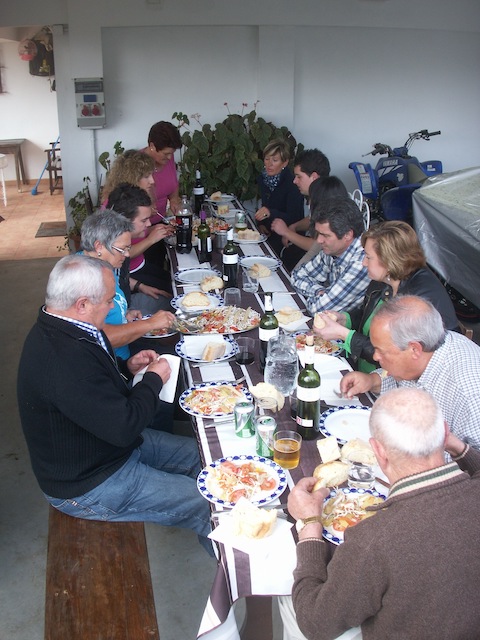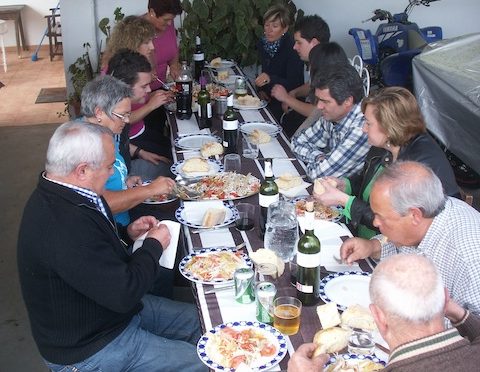There is a scene in one of The Lord of the Rings movies when one of the hobbits is shocked that the human doesn’t know what second breakfast is. The scene always makes me think of the Basque Country; when I go there, it seems I never stop eating. Food is such an important part of the Basque culture, not only to fill bellies but to bring people together – meals are a big part of social life.

- Like most western cultures, there are three primary meals each day. The day starts with breakfast – gosari or barausi. In the Basque Country, this often consists of a drink – coffee or tea for adults and milk or juice for children – and some kind of cereal or pastry, though sometimes eggs or ham might make its way to the breakfast plate. According to Larry Trask, gosari comes from the word gose, meaning hunger. The suffix –ari is often associated with meals, so this is the meal of hunger.
- The middle of the day, usually between 12 and 4pm, is broken up with lunch – bazkari. Timing is slightly different in Iparralde compared to Hegoalde: in the north, influenced by French customs, lunch is typically from 12-2, while in the south it is more often from 1-3. Lunch is by far the biggest meal of the day in the Basque Country. Trask relates this word to baratu, a Basque word for stop.
- And, the last meal of the day is afari – dinner. In Hegoalde, dinner is usually pretty late, particularly by standards in the United States: dinnertime ranges from 9pm to midnight (I’ve sat down to eat more than once after midnight in the Basque Country). Trask’s etymological dictionary highlights sorgin-afari, used in Bizkaia, which is a dinner eaten by women celebrating the last social gathering of the winter and sorgin-apari, from Gipuzkoa, a light midnight supper eaten while building a lime-kiln. Of course, sorgin means witch. While afari has that same –ari ending, the meaning of the root has been lost, though some of related it to gau, the word for night.
- But, that’s not all! Hamaiketako or hamarretako – literally meaning the meal of 11am or 10am, respectively – is a light meal that is eaten between breakfast and lunch, typically at 10 or 11am, as the name suggests.
- And, not to be outdone, there is an afternoon meal as well: askari, arratsaldeko, or merienda. This is another light snack, often a sandwich, to bridge the gap between lunch and dinner.
Primary reference: Otordu, Wikipedia; Etymological Dictionary of Basque, by R. L. Trask, edited for web publication by Max W. Wheeler
Discover more from Buber's Basque Page
Subscribe to get the latest posts sent to your email.


